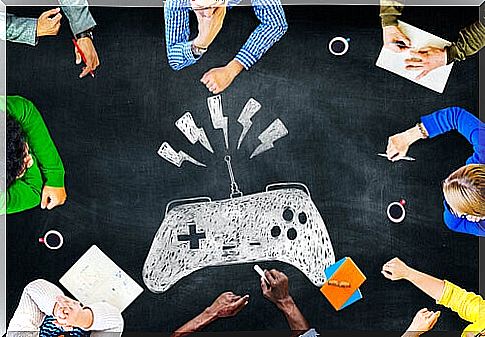Video Game Addiction: Symptoms And Treatments

Video game addiction is a current topic. The growing technological development and the influence of the internet have meant that more and more people have access to games, especially online.
In fact, this last type of game is what worries professionals the most, due to the great power and facility it has to cause addictions. But where is the limit that defines a behavior as addictive? Is every person who gambles to excess addicted to video games? Let’s delve into this subject.
What is video game addiction?
Excessive activity and addictive activity are not the same thing. What sets them apart and what allows us to diagnose addiction is the interference they cause in the player’s daily life. In other words, a person addicted to video games is a person who loses part of his life playing.

Thus, to identify video game addiction and therefore to prevent and treat this behavior, it is necessary to know that there are a number of behavioral indicators of addiction. In this sense, the symptoms related to this addiction are as follows:
- Focusing. Video games become the central core of a person’s life. A lot of your thoughts go to the game or the next game, as are your feelings and actions.
- Modification of the emotional state. A person addicted to video games is characterized by having a subjective experience of euphoria and excitement while playing. Furthermore, this behavior is also considered as a coping strategy in relation to addiction.
- Tolerance. As with any addiction, there is an ever-increasing need to play in order to achieve the feeling experienced at the beginning. Which means that the player will spend more and more time in front of the video game, thus forming a vicious circle.
- Withdrawal symptoms. When it is not possible to play or when playing time is reduced, the individual manifests a series of symptoms similar to those that appear in a withdrawal syndrome. Some of them are, for example: bad mood, irritability, etc.
- Conflict. This symptom refers to conflicts with other people, with other activities or with oneself. Video game addiction affects interpersonal relationships, causes professional or academic conflicts and, in turn, causes the player to begin to have subjective feelings of loss of control.
- Relapse. After periods of abstinence or control, addictive behavior patterns resume.
Treatments for Video Game Addiction
The recent awareness of this field and the lack of research on it makes treatments for video game addiction scarce. In addition, there are some factors that are obstacles to the advancement of research, such as the growth of the video game industry, the low cost that this addiction represents for the player and the permissive attitude of the population towards this type of activity.

Even so, there are measures that can be put in place to prevent this problem from happening. A particularly vulnerable population are children and adolescents. Therefore, some measures are directly aimed at parents and educators who, faced with the suspicion that a child may be addicted to video games, can put the following measures into practice:
- Check the content of the games and, if applicable, replace violent games with more educational ones.
- Encourage the child to play in a group, to avoid isolation and encourage interaction.
- Establish schedules and conditions for playing. For example, arrange with the child that he can play for two hours a day in the afternoon once he has finished doing all the chores.
- Keep an active listen with the child. We must understand that this behavior has an explanation. Maybe it’s a way to communicate or express discomfort in other areas of life.
- If none of these recommendations work, we may ban video games for a while until we see fit to allow them again.
Obviously, when video game addiction occurs in adults, the treatment changes. There are some clinics that perform specific therapies for adults who are addicted to video games. His philosophy is to demonstrate to players that they can get the same satisfaction in the real world. However, this type of addiction is much less common in adulthood.









